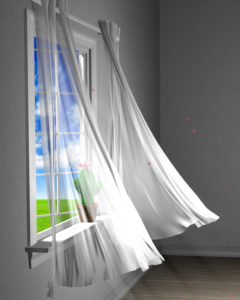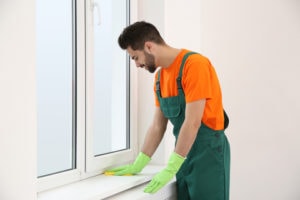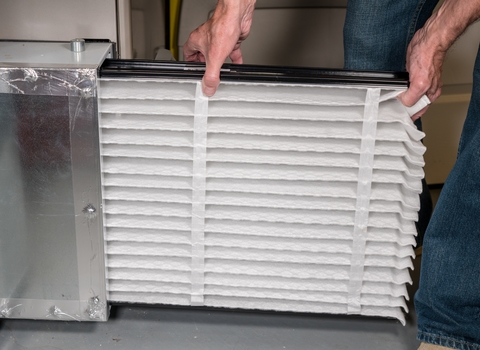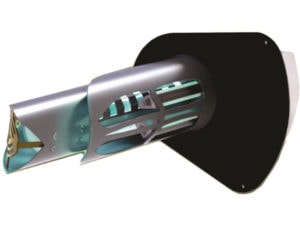How To Improve Your Indoor Air Quality At Home In South Jersey

2020 may be, among other things, the year for improving indoor air quality. Already, we spend a lot of time indoors — up to 90 percent of our day, according to an EPA study from a few years ago.
But now, with more of us inside much more often, it’s more important than ever to keep the air we breathe as clean as possible.
Over the past few years, more and more people have been concerned about the air quality in homes. But, it’s mostly been on the minds of people who have respiratory problems or are especially health-and-wellness-minded.
However, 2020 may be the tipping point year, where just about everyone is thinking about the air they breathe in their home.
With everyone home so much more, improving your indoor air quality goes a long way toward making you feel more comfortable, healthy, and less stressed at home.
So, what can you do to make the air you breathe at home better for you?
In this article, we’ll outline four ways to do just that. We’ll start with things you can do around the house, then look at some of the best tools out there.
Four Ways to Improve Your Indoor Air Quality
This summer, you can improve your indoor air quality with:
Fresh Air and Regular Cleaning
A Dehumidifier
Upgraded Air Filters
Whole-Home Air Purification
Fresh Air and Regular Cleaning
Opening your windows and cleaning makes a significant impact on how well you can breathe at home. Just ask any allergy or asthma sufferer.
But, here’s the problem: Once the temperature really rises and the air conditioner goes on, your windows stay closed all the time.
So, anything that comes into the house — dirt, pollen, dust, whatever — stays there and builds up.
But, that’s what cleaning is for, right? But, it’s not enough to dust and vacuum.
Your first big step toward improving your air is creating a more robust cleaning regimen and opening your windows when you do it.
Make sure you get everywhere, including the tops of door jambs and other hard-to-reach places. You’d be surprised what builds up in those spots.
Meanwhile, the open windows serve two purposes. First, a lot of the contaminants in your home finally find a way out. Second, you get more fresh air into the house, which will make you feel better.
Believe it or not, the air inside is usually dirtier than the outdoors. That’s mostly due to the buildup we just discussed.
So, even though your AC is more important than ever in the summer, remember to let in some fresh air.
Get a Dehumidifier
Humidity can make it hard to breathe inside. Again, ask anyone with asthma or seasonal allergies. Pollen, dust, and other triggers for respiratory problems will hang in the air much more when it’s humid. That makes it easier to breathe in.
If you’re using an air conditioner, you’re already addressing this problem. Removing moisture from the air is a critical part of the cooling process. But, that’s not always enough, even with central air.
And, it’s even worse near the ocean, where the air is much more humid, or if you’re using portable or window air conditioners.
The solution is a dehumidifier that dries out the air even more than what your AC handles. You can go for a portable one: they’re inexpensive and easy to use. But, they’re not that strong and only treat one room at a time.
To really make a difference, consider a model that attaches to your HVAC system. This way, it treats the entire home automatically. You’re not worried about each room individually.
Upgrade Your Air Filters
The next step toward cleaning your air is the filters your HVAC system uses. Any forced-air system with ductwork — think your traditional furnace or central air — uses a disposable filter that traps airborne contaminants.
Most of us get by with a basic one-inch filter. They’re the kind you get at the hardware store and switch out every few months.
There’s a great opportunity here to make a big impact on your air quality.
All you have to do is upgrade the filters or screens you’re using. The stronger ones do a better job of catching smaller particles, including bacteria, mold, and even viruses.
The key here is looking for the MERV rating. It’s a measure of how effective your filter is for trapping smaller and smaller contaminants.
“Regular” filters normally rate between 1 and 4 on the MERV scale, When you get to up to 8 MERV, you’re now trapping more than just dirt and dust. These also catch pollen, dust mites, and mold.
Up around MERV 12 or 13, you prevent most viruses, plus bacteria and pet dander, from circulating through your home.
But be careful! Stronger filters also make your system work harder to do the job. The screens also inhibit airflow, which can cause pressure drops for your heating and air conditioning.
Remember, your system relies on forced air to work. The stronger the screen, the harder it is to push air through it. A filter that’s too strong — usually higher than MERV 12 or 13 — won’t let air circulate. That means weak heat or AC, and possibly damage to your system.
So, it’s a good idea to check with your HVAC company before going for the strongest filter you can find.
Invest in Whole-Home Air Purification
Like dehumidifiers, you can start with a small air purifier. But again, those aren’t very strong, and you’d need one for each room in the house. To get serious, you want a model that attaches to your HVAC system and treats your entire home.
At Broadley’s, we recommend the Reme Halo to any customer looking to make the air in their home cleaner than ever before. Other products on the market tout many of the same features, but we’ve found this one to be most effective.
The big difference between this and your air filter is that the Halo, like other purifiers, goes on the attack while the filters only play defense.
First, a Reme purifier uses UV light to kill off mold and bacteria as those particles pass through the system. Next, it sends very low-temperature bolts of hydro-peroxide plasma throughout the house.
You don’t feel the effects directly, but the electrical charge neutralizes and “deactivates” airborne molecules.
It sounds like science fiction, but the process is “borrowed” from nature. If you’ve ever noticed the air outside feeling cleaner after a thunderstorm with lightning, you’re seeing the same effect.
Here’s an article from the CDC explaining it further. Or you can always call or email us here at Broadley’s for more information. We now also offer teleconferencing and other ways to speak with you without having to come out to your home.
Reach out to us today to make sure your home — and the air inside it — is all ready for summer.







